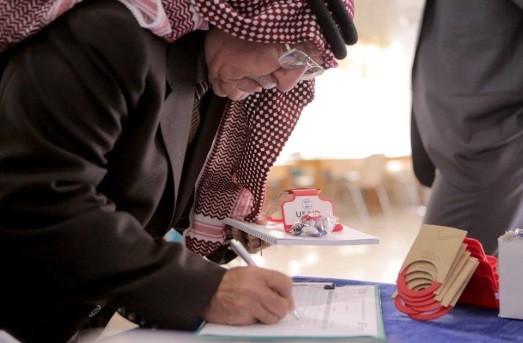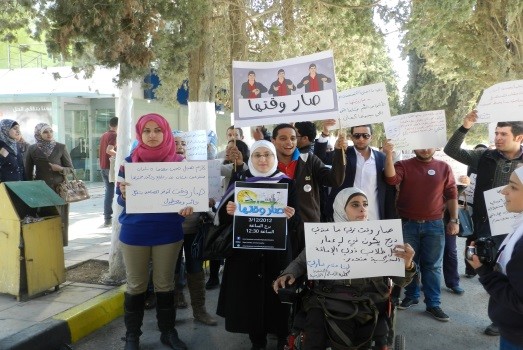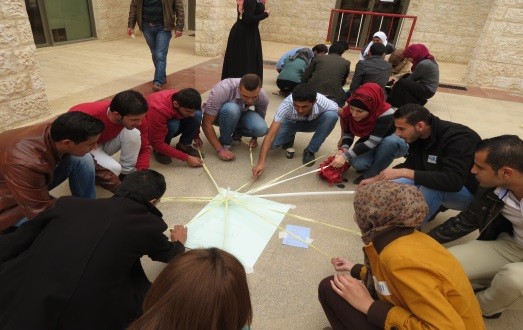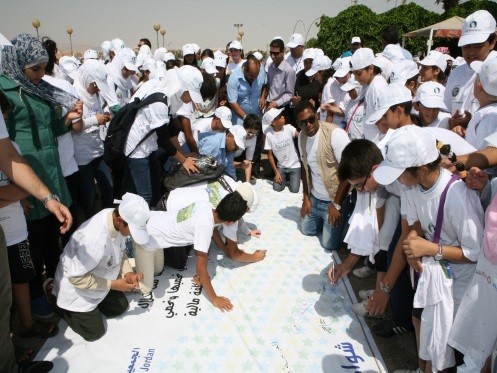
Democratic Accountability Strengthened
OVERVIEW
Jordan is pursuing political reforms to promote greater democratic accountability, transparency, political pluralism, and strengthened civil society. These efforts are expected to enhance Jordan’s long-term prospects for stability and prosperity.
Political reforms to date include the passage of the national decentralization and municipalities laws, amendments to the elections and political party laws, and the creation of a National Integrity Strategy to fight corruption and increase transparency. Reforms also eased requirements for public demonstrations, alleviated restrictions of the State Security Court presiding over civilians, and established a Constitutional Court.
As a result of USAID’s efforts, the 2016 parliamentary elections were judged “credible” by international observers. These elections were held after significant legal changes affected the electoral process, from the formation of political parties and candidate lists, to the establishment of constituent boundaries. The electoral cycle will continue in 2017 to cover municipal elections and the historic governorate-level elections which create governorate councils for the first time, and governorate-level elections.
CHALLENGES

Despite this progress, challenges remain to improve political participation, freedom of the press, the status of women, and restrictions on civil society. Institutions responsible for good governance lack the capacity to fully respond to citizens’ needs. Citizen participation is limited, particularly among women, youth, and persons with disabilities. Civil society organizations (CSOs) and the media exercise weak political and social influence, further hampering citizen participation. Consequently, Jordanians enjoy few opportunities to provide input on issues affecting their daily lives.
Many communities in Jordan contend with the effects of regional volatility and demographic changes, as well as transitions associated with domestic policy reform, deteriorating economic conditions, and the influx of Syrian refugees. These communities face increased strains on basic public services and infrastructure, as well as a rise in community tensions.
USAID continues to support the Government of Jordan’s goal of a more inclusive government—especially for women and youth—while promoting rule of law, media freedoms, anti-corruption activities, and civil society.
CURRENT PROGRAMS
USAID supports the efforts of Jordan’s governmental institutions and civil society to advance political reform in multiple arenas: increasing citizen participation in the decision-making process on priority issues, furthering electoral reform, strengthening an independent judiciary, advancing human rights, improving the capacity of municipalities to provide better quality services, supporting the new decentralization process, and promoting increased transparency and accountability to combat corruption.
USAID promotes the inclusion of disadvantaged groups in political life. USAID also supports community cohesion, stability and resilience, particularly in communities affected by refugees.

IMPACT & RECENT ACHIEVEMENTS
 USAID supports civic initiatives throughout the country. Above, the Royal Marine Conservation Society campaigns for the preservation of Aqaba’s beaches.
USAID supports civic initiatives throughout the country. Above, the Royal Marine Conservation Society campaigns for the preservation of Aqaba’s beaches.

Some USAID-supported achievements include:
- Installed computer automation case management systems with customized Arabic-language in all 74 Jordanian courts.
- Updated and expanded education for judges at the Judicial Institute, becoming a regional model of excellence.
- Created a national network of specialized trainers in advocacy and communication to build the capacity of civil society organizations (CSOs).
- Supported a CSO coalition to report on Jordan’s compliance with international conventions such as the rights of persons with disabilities.
- Strengthened university curricula on human rights and engaged 19,000 youth participants at 24 universities in discussion sessions and activities on democratization and citizen participation.
- Partnered with the Ministry of Education to launch the Ana Usharek Program in 350 high schools to engage students in sessions on democracy, human rights, and electoral procedures.
- Supported a CSO coalition to advance and protect women’s rights; providing recommendations to the Royal Committee; and later ratified by the King, to abolish article 308 in the penal code, which could force victims of sexual assault to marry their attackers.
- Reinforced the establishment of the Independent Election Commission; engaged more than 3,000 officials, activists, and youth to discuss election reform.
- Strengthened the ability of leaders in 20 communities to reduce the pressures created by the influx of Syrian refugees, resulting in upgraded schools, cleaner neighborhoods, and innovative partnerships between the private sector and civil society to address future challenges.
Current Projects:
USAID Civic Initiative Support Program
USAID Community Engagment Project
Rule Of Law And Public Accountability Strengthening
Consortium For Elections And Political Process Strengthening








Comment
Make a general inquiry or suggest an improvement.